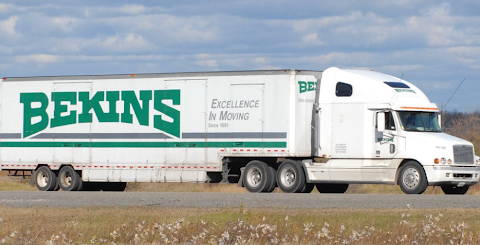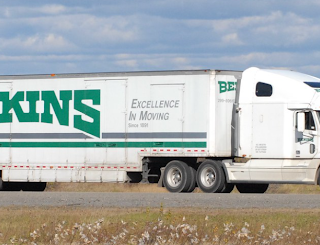Discover the best states for retirees to retire in 2025 based on taxes, cost and lifestyle. Find your ideal place to retire—get a moving quote from Bekins!
The Bekins Blog
Tips on Moving
Moving with kids? Learn how to find good schools in your new state. Use these expert tips to make your family move smooth and school-ready. Start here.
Everyone makes mistakes while moving—but most moving mistakes are preventable with a little preparation. Especially when planning a long-distance move, research and expert guidance can help you avoid emotional and financial traps. We put together this guide to share what we’ve learned from decades of out-of-state moving. We’ll outline the common mistakes we’ve seen and…
An interstate move is a major undertaking and choosing how you want to get the job done is no easy task. After all, your choice will impact your budget, time and stress levels. To help you find the right balance between convenience and economic practicality, we’ve put together this comprehensive comparison of your two main…
Moving later in life often means managing physical limitations, emotional ties to a longtime home and the logistical details of transporting decades’ worth of belongings. Moving across state lines adds another layer of complexity, requiring careful coordination to avoid unexpected problems. Working with a moving company that understands these needs can make the experience less stressful.…
A & W Transfer & Storage of Amarillo, Tex., was awarded Bekins Van Lines Agent of the Year Thursday, February 27 at Bekins’ sixth annual Van Line Summit & Awards Gala. The award is given to the top interstate agent for Bekins Van Lines that exemplifies putting customers first and the characteristics of quality, professionalism,…
Bekins Van Lines held its sixth annual Van Line Summit & Awards Gala on Thursday, February 27, during which Bekins Vice President of Operations Kevin Miller announced Vince Clemente as the winner of the van line’s rare Stephen F. Burns Extra Mile Award. The distinguished recognition, which hadn’t been earned since 2019, acknowledges the recipient’s…
Announced Thursday, February 27 at its sixth annual Van Line Summit & Awards Gala, Bekins awarded top honors to an outstanding driver in the network as 2024 Driver of the Year. To be eligible for these awards, individuals must first earn a Driver of the Month award between January 2024 and December 2024 and consistently…
Moving Tips, Preparing for Your Move
One of the most important decisions when planning a residential move is how to cover your moving expenses. Should you dip into your savings or opt to finance the cost? Both options have their pros and cons, and the right choice could depend on your financial situation and goals. Keep in mind that your moving…
Relocating for a new job can be both an exciting opportunity and a logistical challenge. To ease the financial burden associated with moving, many employers offer relocation packages. But knowing how much assistance to request—and ensuring you don’t miss critical expenses—requires careful planning. While we don’t provide specific amounts, this guide explains how relocation packages…



















